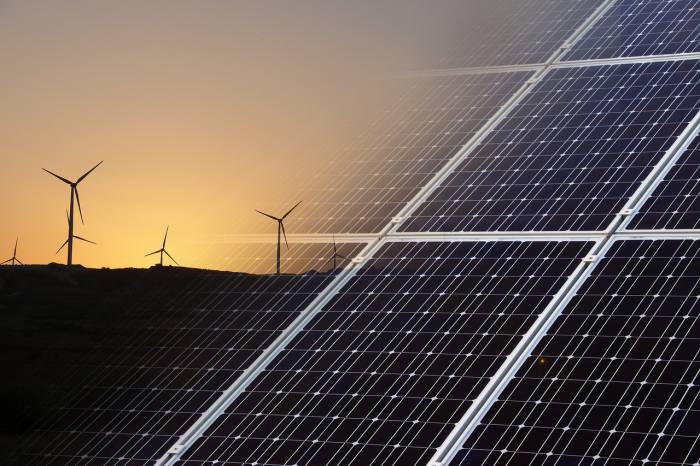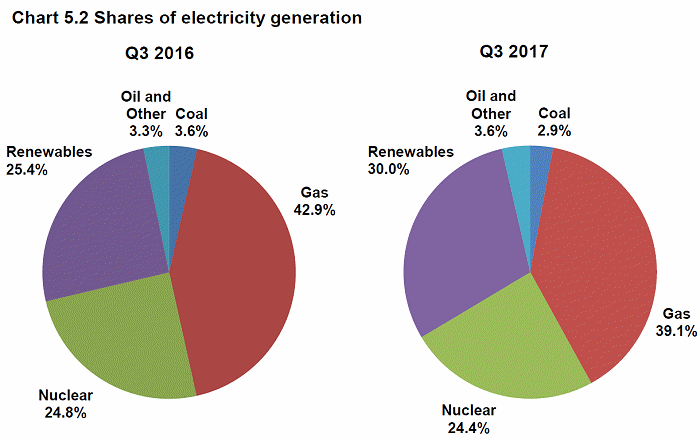
Image: seagul
Renewable energy’s share of electricity generation in the UK hit a new Q3 record, while coal and gas based generation experienced a record low.
The UK Government’s latest Energy Trends report reveals wind energy, solar power, hydro and other renewables increased from 25.4 per cent in Q3 2016 to 30.0 per cent in this year’s third quarter, due to increased wind and solar capacity along with higher bioenergy generation compared to last year.
“This latest record is yet another nail in the coffin for the claim that renewables cannot be a sizeable part of the UK’s electricity mix,” said Dr Jonathan Marshall, Energy Analyst at the Energy and Climate Intelligence Unit (ECIU) . “As the technology to integrate more wind and solar improves, these headline figures are set to become more and more frequent.”
In the third quarter, gas use was 6.8 per cent lower than in 2016 (generation dropped 11% to 29 TWh) and coal use plummeted 27% (generation fell 20% to 2.2 TWh).
While there was a decrease in daily sun hours of 0.6 hours on average, solar electricity generation jumped 4.2 per cent due to a 7.6 per cent increase in capacity over Q3 2016.
At the end of November 2017, overall UK solar PV capacity stood at1 12.6GW, represented by 935,120 solar power installations. This was an increase of 7.7% (902 MW) compared to November 2016.
At its peak in 1980, 90 million tonnes of coal was burned in the UK for electricity generation.2. In 2016, that had dropped to 12 million tonnes.
Just 5 years ago, coal was generating more than 40% of the UK’s electricity. Coal is now a bit player, accounting for just 2.9% of generation during Q3.
As well as helping to push coal out, solar energy is also assisting in cleaning up coal’s mess in the UK.
The UK Government recently signed on to the Powering Past Coal Alliance; a collective of nations, states, cities and organisations committed to, as the name suggests, moving the world from burning coal to other cleaner power sources. The ranks of the Alliance have rapidly grown since its launch in November. Australia’s Energy Minister Josh Frydenberg has reportedly commented that Australia won’t be joining.
While the UK is importing a significant amount of electricity from France and the Netherlands (overall net imports of electricity increased by 14 per cent from 4.7 TWh in 2016 Q3 to 5.3 TWh in 2017 Q3), both countries are Alliance members.


 RSS - Posts
RSS - Posts



Please forward this article to the relevant federal politicians and request confirmation that they have read it in its entirety.